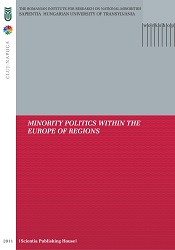The Historical and the Present Status of the Turkish Minority in Bulgaria
The Historical and the Present Status of the Turkish Minority in Bulgaria
Author(s): Fahri Türk
Subject(s): Politics / Political Sciences
Published by: Scientia Kiadó
Keywords: Turkish minority; Bulgaria
Summary/Abstract: Although the Bulgarian Turks had been suppressed by the government authorities since the Independence of Bulgarian Kingdom in 1908, after the collapse of the communism they have gradually become the most influential minority in Eastern Europe. According to the 2005 census in Bulgaria, there live 7,450,000 people totally, out of which the Bulgarian Turks make up 9.4 % (700,300). Although Sofia guaranteed the cultural and religious rights of the Turks according to bilateral agreements with Ankara, it started to suppress the Turkish minority to a great extent in 1984. The Bulgarian government banned the usage of Turkish names for its citizens. So, the Turkish minority had to take Bulgarian names until 1991. It was even forbidden to speak Turkish in public places. In the end, the Bulgarian government declared that it would not recognise a Turkish minority in Bulgaria. The Turks in Bulgaria “were not” Turks but Bulgarians forced to convert into Islam by the Ottoman government. After the collapse of the communist system, the Turkish minority engaged itself in the political arena of Bulgaria. S, the Rights and Liberties Party, whose members are from the Turkish minority, gained 34 seats in the 240-seat parliament during the general elections in 2005. Afterwards, the Rights and Liberties Party took part in building a new coalition government in Sofia, where it was represented by three ministers. This engagement gave the Turkish minority the possibility to regain their rights they had lost in the wake of the assimilation policy of Todor Zhivkov. In January 1991, the Bulgarian government allowed the Turkish minority to learn Turkish in the schools where they live in majority such as in the city of Razgrad. Beside that, the National Bulgarian Radio started to broadcast Turkish programmes in 1993. The EU membership of Bulgaria gave new impulse to the Turkish minority to become aware of their cultural and other civil rights.
Book: MINORITY POLITICS WITHIN THE EUROPE OF REGIONS
- Page Range: 443-453
- Page Count: 11
- Publication Year: 2011
- Language: English
- Content File-PDF

